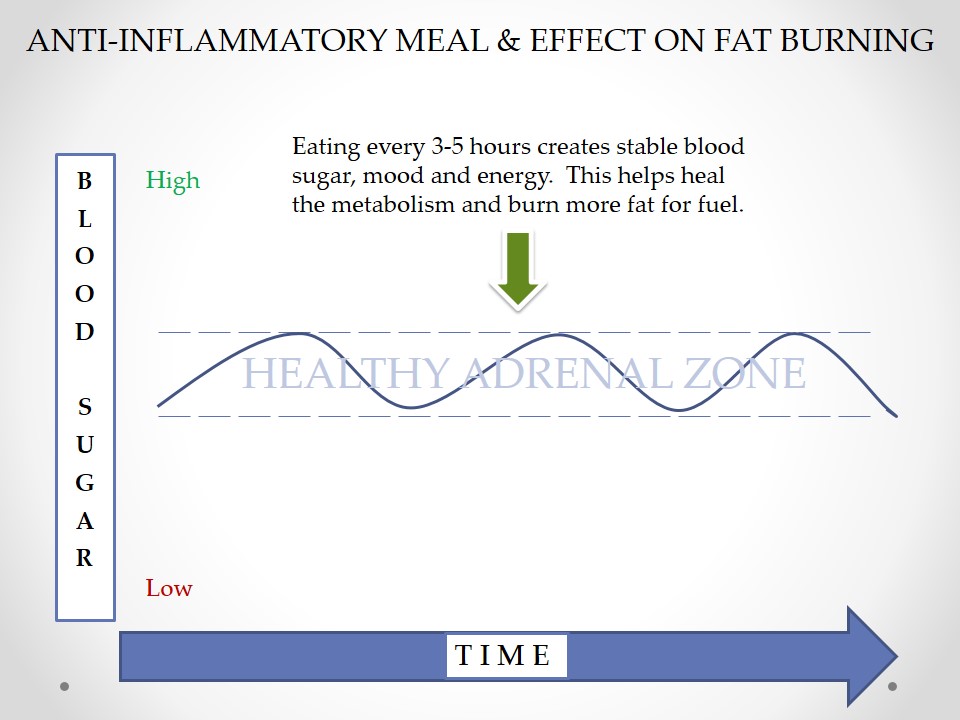
By Dr. Justin Marchegiani
More than one-third of the country has a condition known as metabolic syndrome.
Metabolic syndrome has some important features that are seen in nearly all cases, and these are blood-sugar imbalances and insulin resistance.
When blood sugar or insulin becomes elevated, it can create inflammatory cascades that can contribute to obesity, high blood pressure, diabetes, and cardiovascular disease.
Most conventional treatments to address metabolic syndrome and blood-sugar imbalances do not address the root causes. Essentially, people with the condition can live longer with the symptoms; yet nothing is done to address the root cause of what's driving the condition in the first place.
Below are some of the typical treatments that are used.
Below are some functional-medicine tests that can help detect early signs of blood-sugar imbalances or metabolic syndrome.

If you are suffering from any type of hormonal imbalance, whether it be hypothyroidism, PMS, menopause, or even fatigue and weight gain, your blood sugar needs to be addressed.
Blood-sugar issues are almost guaranteed to be a foundational part of any hormonal problem. Every time your blood sugar ebbs and flows up and down, your adrenals and pancreas have to come to the rescue. When your blood sugar goes up, your pancreas has to produce insulin to help lower your blood sugar. While at the opposite end, your adrenals have to spit out adrenaline and cortisol to bring your blood sugar back up. Oh, and did I mention when cortisol goes out of balance it causes belly fat!
The typical pattern tends to be this: Eat a meal with excess refined carbohydrates, and your blood sugar spikes very high. Your body responds by producing a whole bunch of insulin to knock that blood sugar down! The pancreas overshoots, and produces too much insulin. Now, our blood sugar is super low, and we may start to feel anxious or jittery. Also, we may crave lots of sugar and sweets. The next thing we do is eat more carbohydrates and start the cycle all over again. This is the cycle of death that is common with most patients who have hormonal issues. It may not be quite so blatant for most people, but at some level it is happening, and it's very addicting!
When blood sugar drops (hypoglycemia), your body also increases production of an excitotoxin called glutamate. The combination of low blood sugar and high levels of glutamate decrease activation of the frontal cortex. The frontal cortex is the part of our brain that allows us to have higher levels of thinking and brain function; it differentiates us from almost all other mammals. When we lose activation to our frontal cortex, it's common for us to make stupid decisions, act irrational, and eat more unhealthy food. When we eat poorly, we literally lose our brain, and it's so easy for this vicious cycle to perpetuate itself again and again and again (1).
The same type of excitotoxin response can happen when you consume aspartame, food dyes, and MSG. Avoiding these food additives can have a tremendous effect on lowering your glutamate levels and thus not allow you to use your frontal cortex as efficiently. If it's your goal to perform at the highest level, you want to make sure you are using your head!

If you're having hormonal issues, one of the best things you can do is stabilize your blood sugar. Eating high-quality protein and fat first thing in the morning, within the first 30 to 60 minutes of waking, is very helpful. The more your blood sugar is stable, the more your endocrine glands can focus on helping you have energy and healthy sex-hormone balance.
If you're having problems with your blood sugar, click here for more help!
Reference: